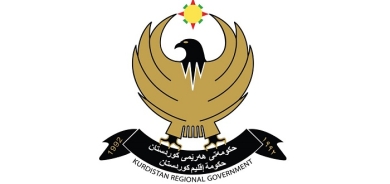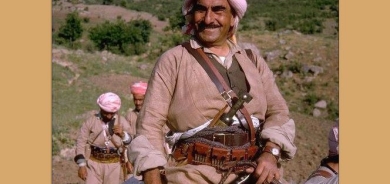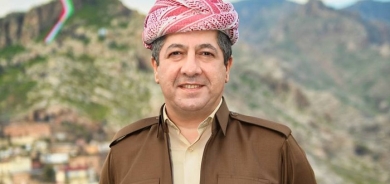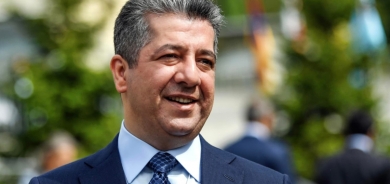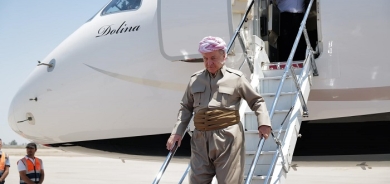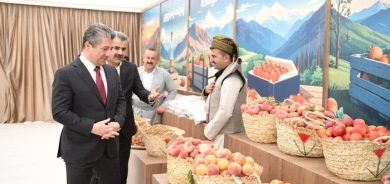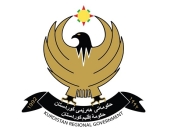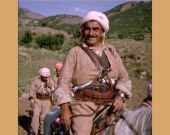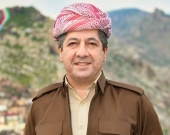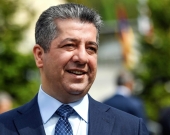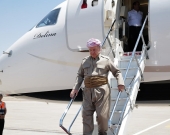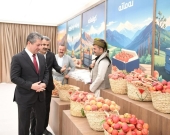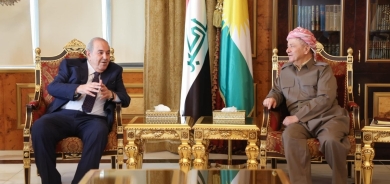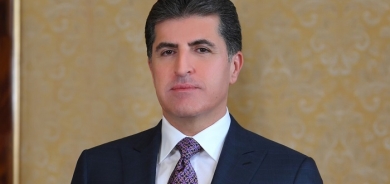Syrian situation is going to be bloodier before it gets better

The situation in Syria has changed both politically and diplomatically. The Syrian opposition has been recognized by the Arab League for the first time and The Syrian National Coalition has taken over their nation's vacant seat at the Arab League. Although the opposition has been armed, the situation is now deteriorating and it is expected that the Assad regime will bitterly fight around Damascus and will consequently use chemical weapons—like the Ba'ath regime in Iraq—against its people. In this respect, Joshua M. Landis Associate Professor in the Department of International and Area Studies at the University of Oklahoma and Director of the Center of Middle Eastern Studies, in an interview with Gulan observes:
Assad's regime cannot be ended in the near future, but obviously there is much more pressure because the west and the Saudis have begun supply more arms to rebels and we have seen a steady supply of much better quality, more sophisticated weapons going to rebels and this is important. Secondly, the Arab League Conference is the most important symbolically because for the first time the Syrian opposition has been recognized officially by international body and by the Arab League and at the end of their meeting they are agreed that it is now legal to send arms to Syrian opposition and that the opposition is a legal representative of the people of Syria.
Getting better quality weapons for the opposition is going to change the balance of power. If they can shoot down the air force, it means different people will be killed, instead of the people of the north will be killed, it will be people in the south. It will be more violence around Damascus. Things are going to be much bloodier before they get better. We have just seen fighting between Jabhat al Nusra and Farouq Battalions. They shot the commander of the Farouq Battalions and now he is in Turkey getting medical treatment, but he is survived. There is fighting between militias over geography and over basic ideology, but it is not clear who is going to get the borders and also get money.
In addition, Magnus Bernhardsson an Associate Professor of History at Williams and specialized in the history of Iraq and Syria, states:
People have been thinking that toppling Assad's regime would be the case for the last two years. Particularly since the summer of 2011, people have been predicting the very swift end to his regime and people have really thought that it would be similar to Tunisia and Egypt, but for whatever reason Syria has resembled more Bahrain where the government has been able to resist some of the rebels and providing applicants for the government. This is quite surprising particularly since Syria is somehow isolated especially politically in the Middle East, but it has some international support from Russia, China, and Iran. Yet, at least among Middle Eastern neighbors does not seem to have an official support. So this is quite surprising that it has been able to withstand for so long and engaging in a civil war. I think with every single day the opposition is gaining ground and politically is on the rise when the Assad regime is publically on the sleigh out but remarkably resilient.
Assad regime has a strong army and had a very regulate security state and there was not much opposition inside the country prior to 2011, so the opposition really had to start from the scratch. However, Syria is more willing to use weapons against its people in order to stay in power than Tunisia and Egypt.
End of Syrian Conflict will Change the Whole Region
Obama's visit to the Middle East, in particular, Israel and his persuasion to get Israel to apologize to Turkey and also to arm Syrian opposition are all indications that the Syrian conflict is going to settle sooner or later. Since those who defend Assad regime are going to be affected by its fall, they are trying everything to protect it. In this regard Joshua Landis further comments:
Toppling Assad's regime will certainly divide the area because you also see that Maliki feels very threatened by the Syrian situation and by the improvement in military arms to the Salafi groups particularly Jabhat al Nusra because those arms will be used in Iraq as well against Shiites. So he refused Obama's request to stop allowing Iran spread its weapons across Iraq into Syria. It is hard to tell that the division of the region is going to happen in the short term or in the long term. Everything depends on how much and how improved the Sunni rebels become. If they unify and get better weapons, they will destroy the Alawite. And either the Alawite will stay and then kiss the hands of the Sunnis or they will run away and go to Lebanon and destabilize Lebanon too. I do not know what will happen, it depends whether the Sunnis are consolidate, who wins, those sorts of things…
In the Kurdish region, there is the same war, the same thing. In the short term, the Kurds will gain greater autonomy, but in the long term, Sunni Arabs will re-conquer it.
The things are seen in Ras al-Ayn is that Jabhat al Nusra is trying to push against the Kurds and this is a complex negotiation. The Kurds accuse Turkey of helping Jabhat al Nusra and using the Jihadist against the Kurds in the same way as the Syrians using jihadist against the Americans, but Ocalan brought ceasefire and this will be good for the Kurds because the Turks will not use Jabhat al Nusra in order to hurt them. The Turks have a lot of authority today over the militias because they all need Turkey for headquarters, for hospitals, for everything… so Turkey want the attackers to attack the Kurds and they have to attack the Kurds. When Ocalan negotiated with the Turkish government, these sorts of questions were on the fore front of the discussions. He wants to protect the Kurds in Syria from attack by Arab militias. I do not know this but I expect it…
Turkey is worried that PKK becomes stronger and this is where diplomacy is necessary. If Turkey can be reassured that Syrian Kurds will not destabilize Turkey and use Syrian territory to help terrorist activities or violent activities inside Turkey, then they can look at the Kurdish in Syria the same way that they look at the Kurdish in Iraq, as a trading partner in every aspect which is good for future Kurdish-Turkish relations. But if Kurds are trying to expand and spread independence ideas to the Kurds inside Turkey, then Turkey is going to be angry and do everything that it can to hurt the Kurds. So it is a delicate diplomacy and this is where the Kurds have to reassure the Turks that they want only Iraqi and Syrian territories, not Turkish territory. Because clearly Kurdistan in Iraq turned out to be very good for Turkey… many Turks were frightened and did not want Kurdistan in Iraq in 2003, but today they have seen in it many advantages and this could be the same in Syria if the Kurds are smart.
Since there are many possibilities and they are critical, observers are trying to interpret and analyze the situation based on the possibilities. Hence, Magnus Bernhardsson further notes:
All the questions depend on what is the outcome in Syria and who emerges as a faction amongst the opposition. Many Syrian Christians are very worried about what will be the new regime. There are also other minorities in Syria such as Kurds and others who are worried about what this might mean for their position in Syria because we know very little about who are in the opposition and their vision on the future. All we know is that they are against the current regime, but we do not really know what their ideology and their vision are, so it all depends on how this will work out and people are worried about the current situation because of its centrality, its historic place, its ethnic make-up, and whether the situation in Syria could pass over to Lebanon, Iraq, and Jordan. If Syria does break apart, that will definitely put pressure on other states, which are multi-ethnic states in the region such as Turkey, Iraq, and even Iran.

